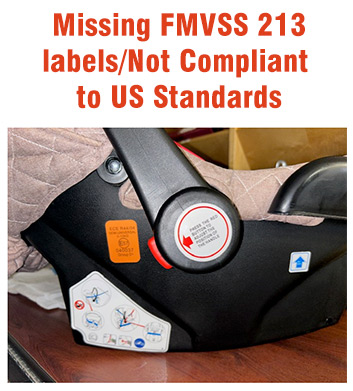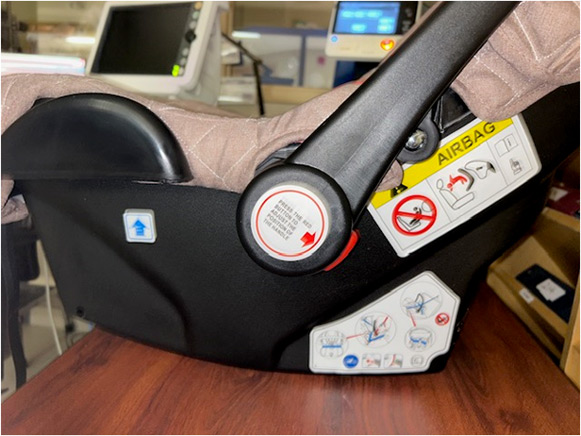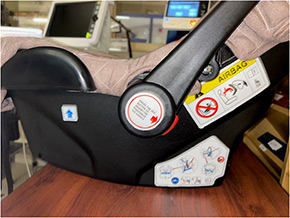Tips to Spot Counterfeit and Non-Compliant Car Seats
1. Look for labels
Car seat labels are a good indicator of a compliant car seat. All compliant car seats will contain a manufacturing label with name, model number, date of manufacture and/or expiration dates, and a warning label that states, “This child restraint system conforms to all applicable Federal Motor Vehicle Safety Standards (FMVSS).” The labels will be in both English and Spanish. In addition to missing labels, look for grammatical errors on labels, which are another red flag.
2. Check for missing parts
If a car seat is missing parts such as the harness which goes over the hips and shoulders, the crotch buckle, or the chest clip, that is a sign that the car seat is non-compliant or counterfeit.
3. Make sure that the manual and registration card are included
Car seats must be sold with a manual and a registration card. Any car seat that is not sold with these required documents is more likely to be non-compliant or illegitimate.
4. Register your car seat
Registering your car seat is always a good idea. This is how the manufacturer will be able to alert you to any recalls or other pertinent information regarding the seat. However, registering your car seat can also help prevent you from using counterfeit seats, since each car seat is connected to the manufacturer with a unique serial number. If you are able to successfully register your seat, it helps verify the legitimacy of the seat because some counterfeits will have fake or duplicate serial numbers that would not register properly.
5. Exercise caution when buying from third-party sellers
When purchasing car seats second-hand from online sellers, it is important to understand the risks. You are not able to verify the history of the car seat, nor the authenticity. Try to buy car seats from reputable sources, such as directly from the car seat manufacturer, or other major retailers. Next Steps
Before purchasing a car seat, be sure to check for red flags using these tips. If you determine that you have a counterfeit car seat or non-compliant car seat, discontinue use immediately and contact the retailer to notify them that they sold a counterfeit or non-compliant car seat. You may even be able to recover the cost of the seat if you used a credit card or purchased through a major retailer such as Amazon. If you want assistance evaluating your car seat, or with car seat installation, contact a Car Seat Assistance Stations near you.





